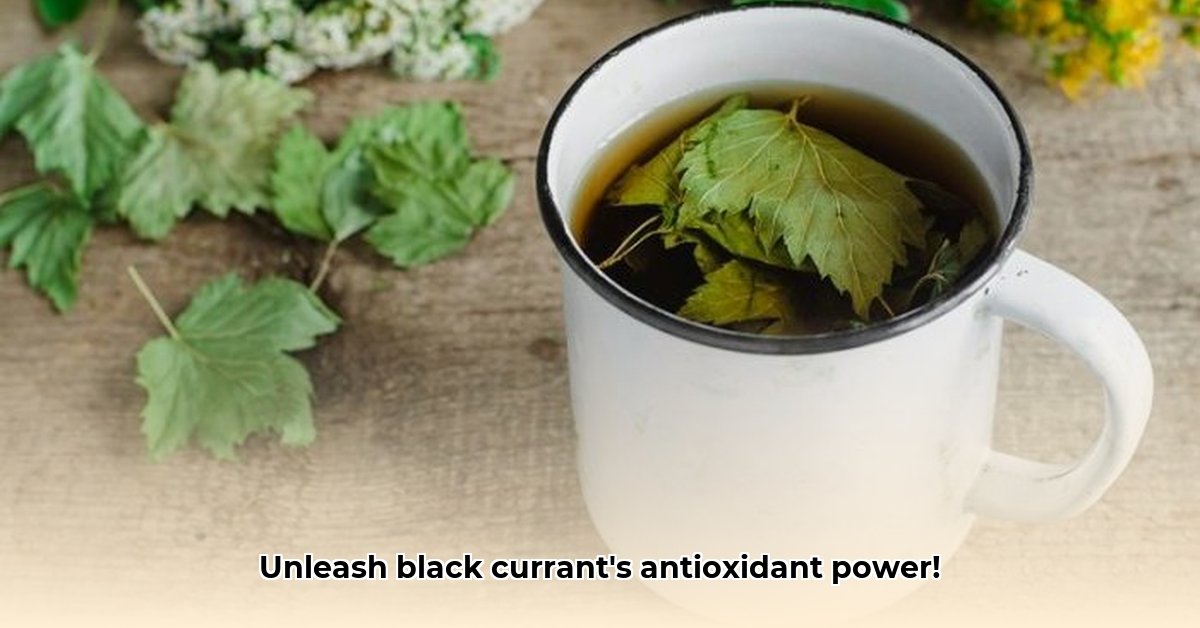
Understanding Black Currant Tea: Potential Benefits and Limitations
Black currant tea, a caffeine-free beverage derived from the berries of the Ribes nigrum plant, is gaining popularity for its purported health benefits. While anecdotal evidence and some preliminary research suggest potential advantages, it’s crucial to approach claims with a balanced perspective, acknowledging the limitations of the current scientific evidence. This review will explore the potential benefits and risks associated with black currant tea consumption.
Antioxidant and Anti-inflammatory Properties
Black currants are exceptionally rich in antioxidants, particularly anthocyanins (responsible for their deep purple color), and Vitamin C. Antioxidants help protect cells from damage caused by free radicals, unstable molecules linked to aging and various diseases. This antioxidant capacity might contribute to black currant tea's potential anti-inflammatory effects. However, further research is needed to confirm the extent of these benefits in humans. Does this mean we should dismiss the potential benefits? Not necessarily. The high concentration of antioxidants alone suggests a valuable role in supporting overall health.
Immune System Support: The Role of Vitamin C
Black currants are a significant source of Vitamin C, a nutrient vital for immune function. Vitamin C helps support the production of white blood cells, which are essential for fighting off infections. A higher intake of Vitamin C may, therefore, contribute to a stronger immune response. Could this translate to fewer colds? Possibly, but more rigorous clinical trials are necessary to definitively establish this link.
Other Potential Benefits: Preliminary Evidence
Some preliminary research suggests that black currants may possess additional health benefits. For instance, studies hint at potential antiviral activity, particularly against influenza. However, these findings are still in the early stages and require more substantial investigation before drawing firm conclusions. It's also important to remember correlation doesn't equal causation—more research is critical to understanding the mechanisms and clinical relevance of these findings.
How to Brew and Incorporate Black Currant Tea
This section provides a practical guide to brewing and incorporating black currant tea into a healthy lifestyle.
Brewing Instructions: A Simple Guide
- Water Temperature: Use freshly drawn hot water (around 180-200°F or 82-93°C). Boiling water can degrade some of the beneficial compounds.
- Steeping Time: Add 1-2 teaspoons of dried black currant leaves or berries to a cup of hot water. Steep for 5-7 minutes for a milder flavor, or longer for a more intense taste.
- Strain and Enjoy: Strain the tea leaves or berries before drinking. You can enjoy it plain or add a touch of honey or lemon for extra flavor.
Dosage and Frequency: A Moderate Approach
While generally safe, it's best to start with one cup of black currant tea daily and monitor your body's response. Excessive consumption might lead to gastrointestinal upset in some individuals. Consulting a healthcare professional before significant increases in intake is advisable, particularly if you have pre-existing health conditions or take medication.
Potential Side Effects and Precautions
While generally safe, black currant tea can have potential side effects in certain individuals. These include mild gastrointestinal discomfort, sleep disturbances, and potential interactions with certain medications (particularly blood thinners). Pregnant or breastfeeding women and individuals with pre-existing conditions should consult their healthcare providers before consuming black currant tea regularly.
Black Currant Tea: Part of a Holistic Approach
Black currant tea, with its wealth of antioxidants and Vitamin C, can be a valuable addition to a healthy lifestyle. However, it is not a miracle cure. Remember, a balanced diet, regular exercise, and adequate sleep are all crucial components of overall well-being. Black currant tea should be considered one component of this larger strategy, supporting, but not replacing, other critical health practices.
Frequently Asked Questions (FAQ)
- Is black currant tea good for weight loss? There is no scientific evidence to support claims of weight loss related to Black Currant Tea.
- Can I drink black currant tea daily? Moderate consumption is generally safe; however, be aware of potential side effects and interactions with medications. Consult your doctor if you have concerns.
- Where can I buy black currant tea? Black currant tea is widely available online and in health food stores.
Disclaimer: This information is for educational purposes only and does not constitute medical advice. Consult a healthcare professional before making significant dietary changes or using black currant tea to treat a health condition.